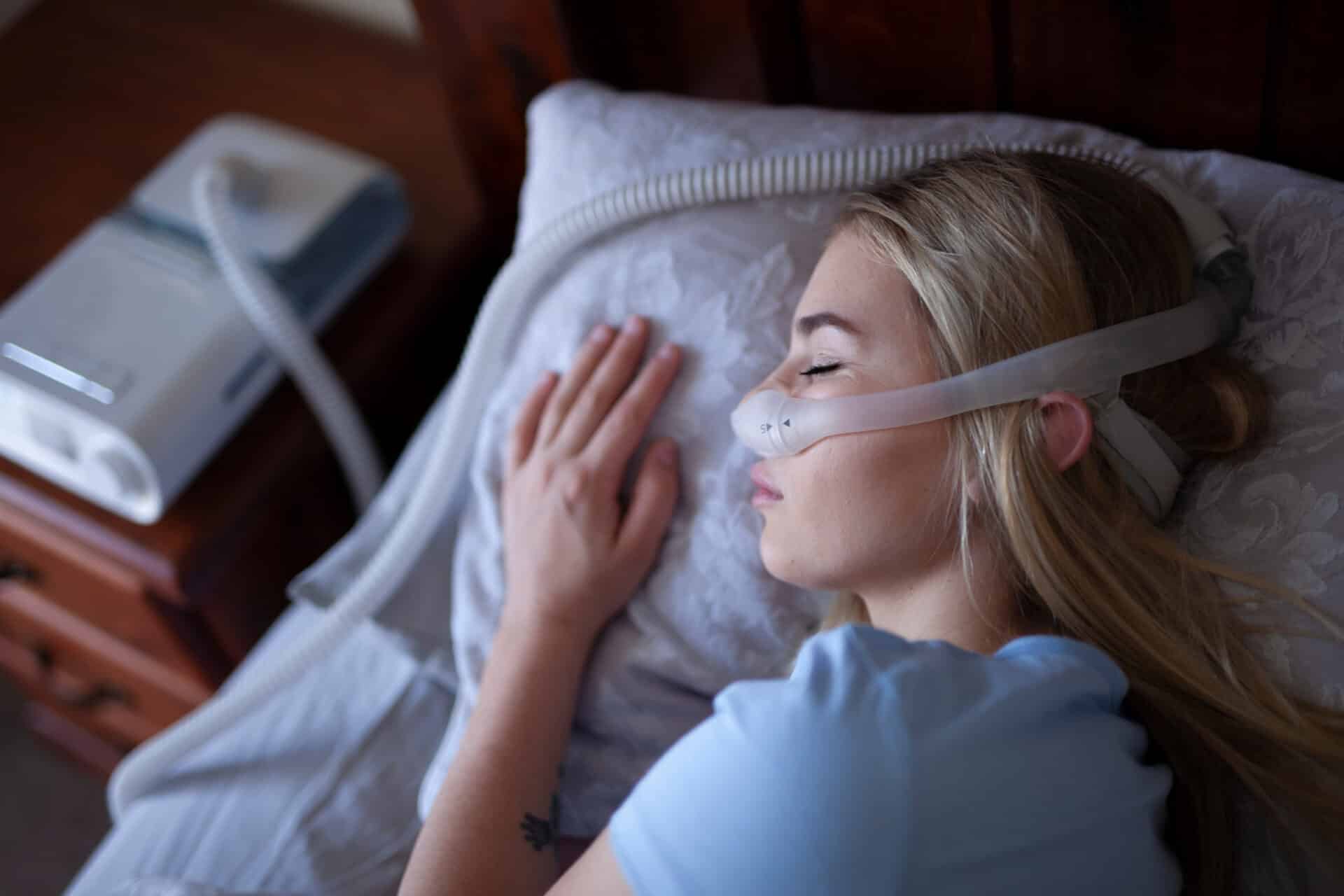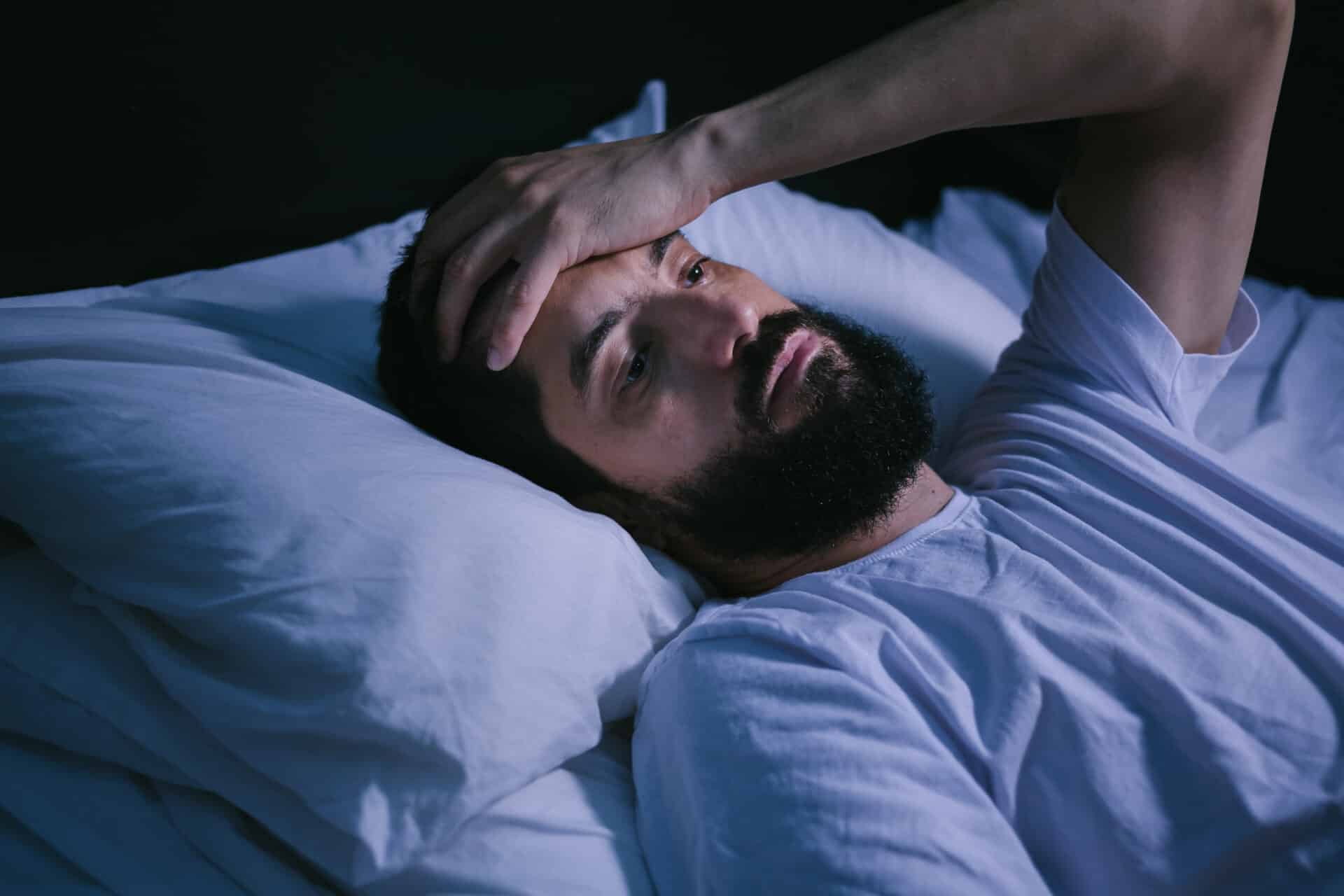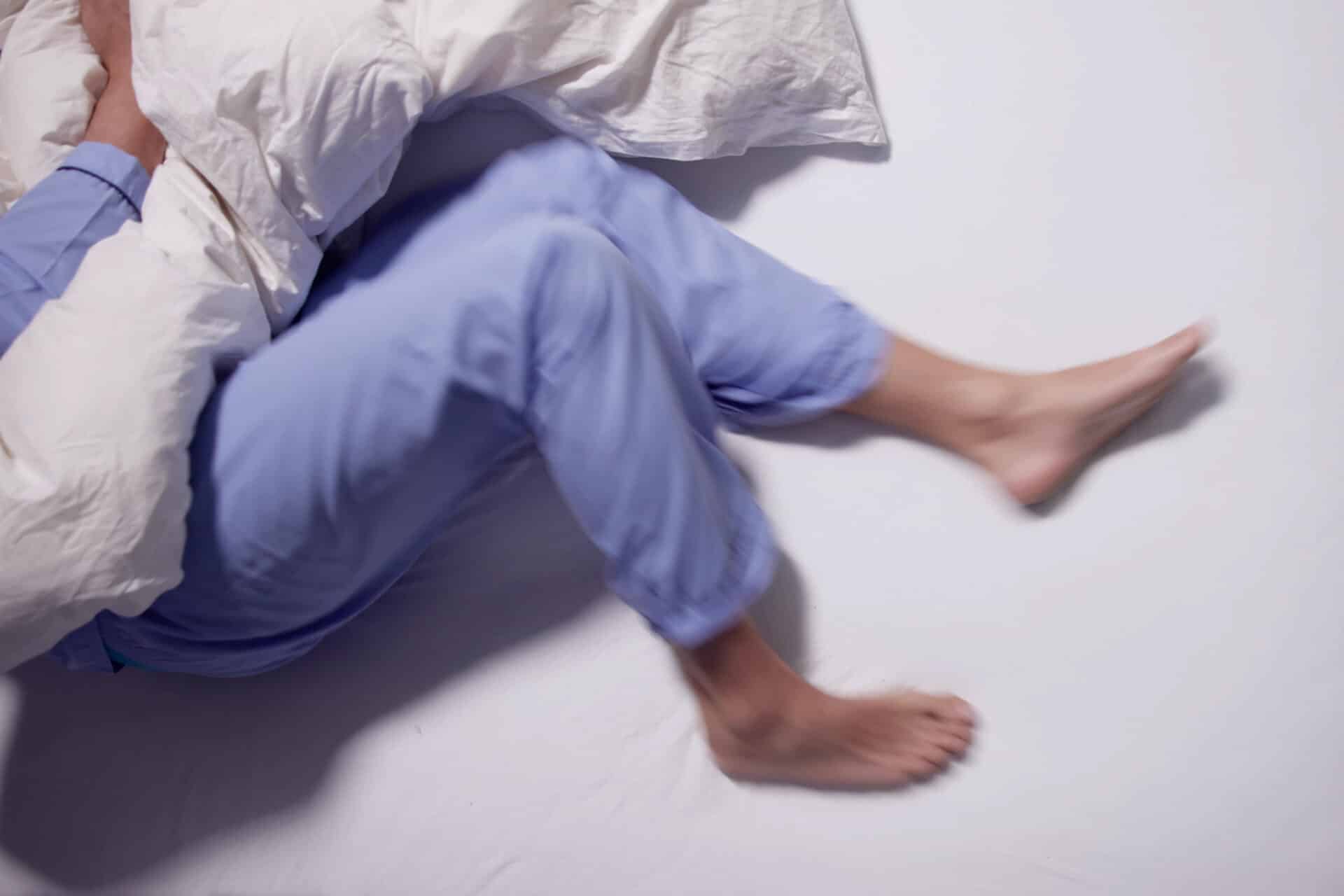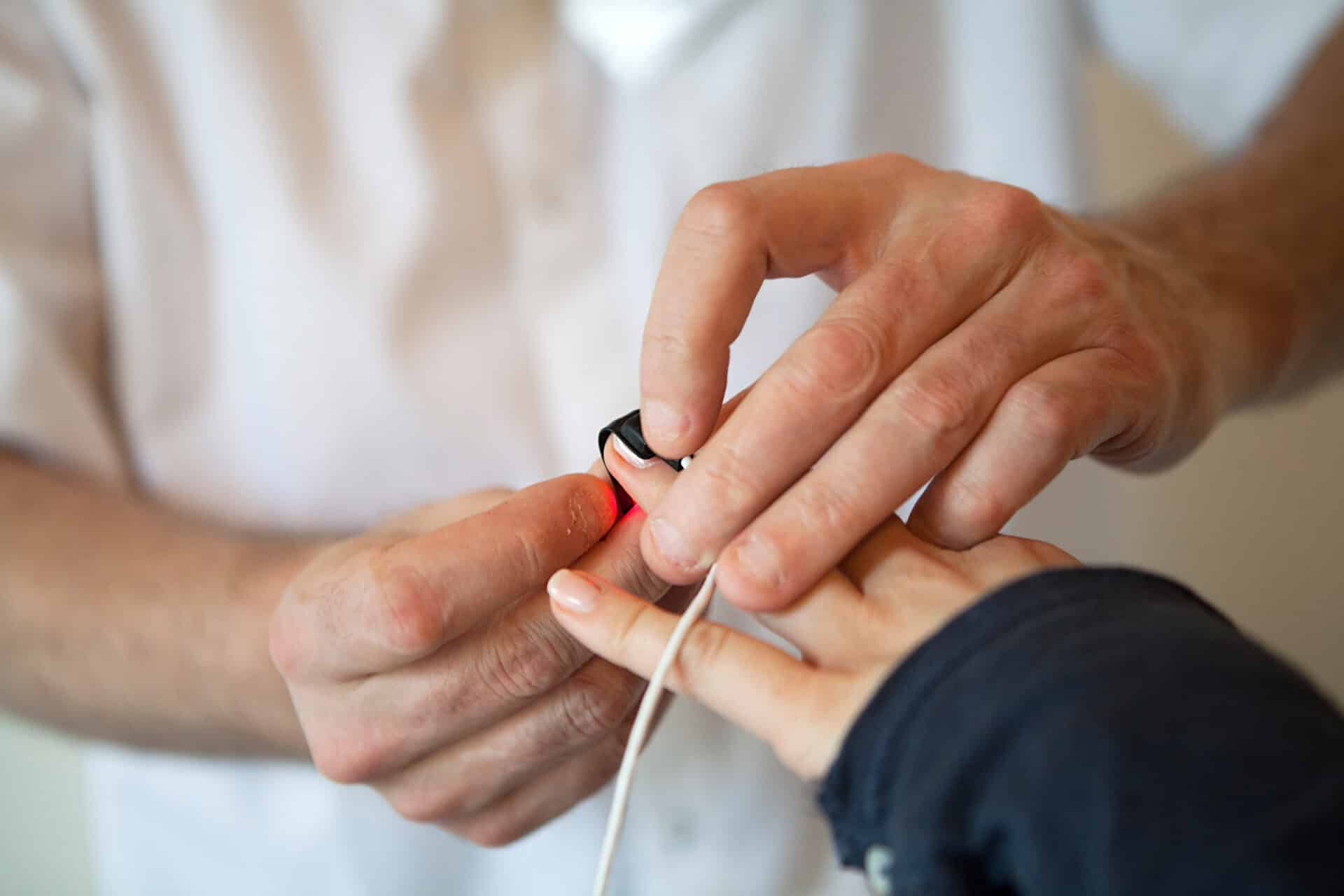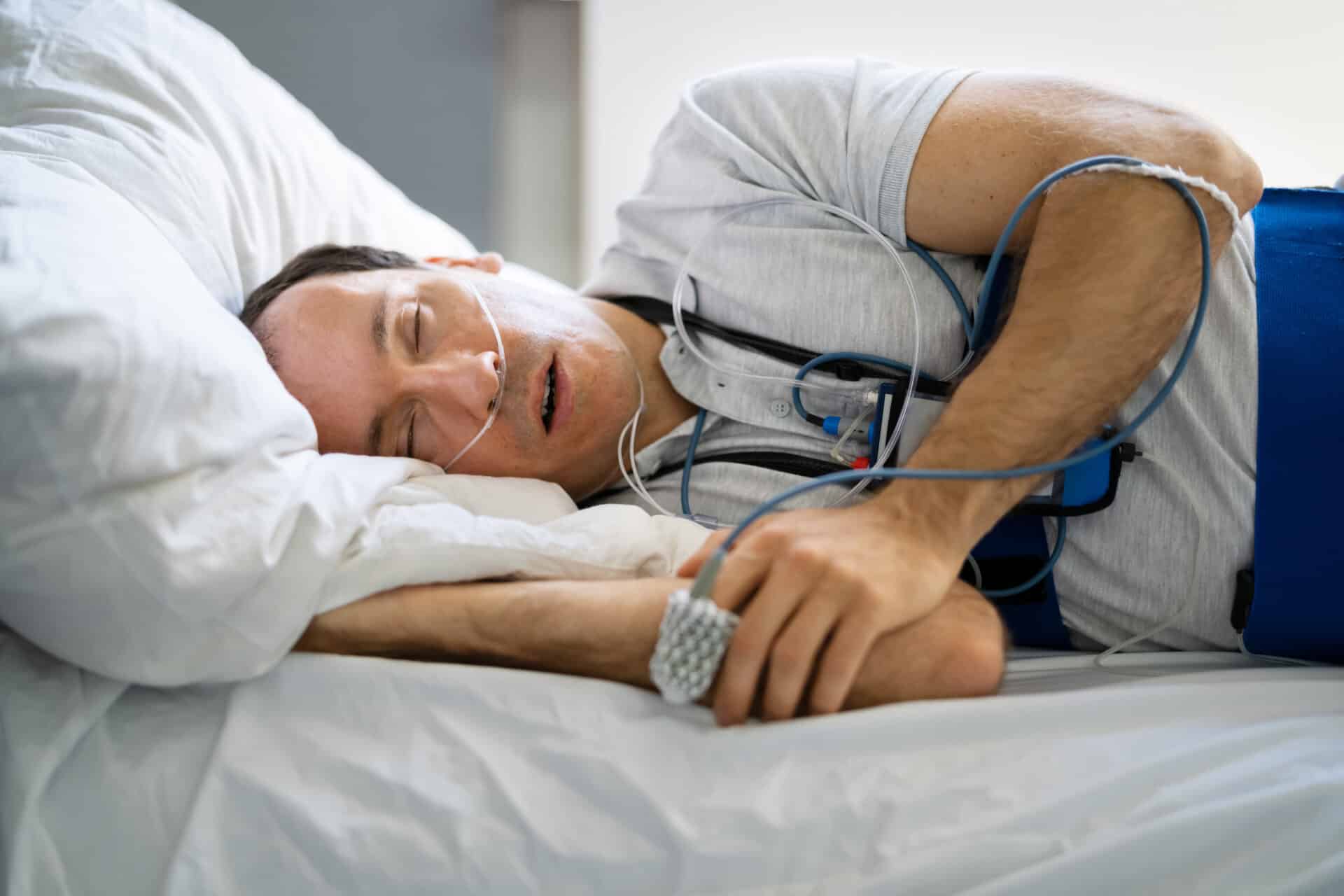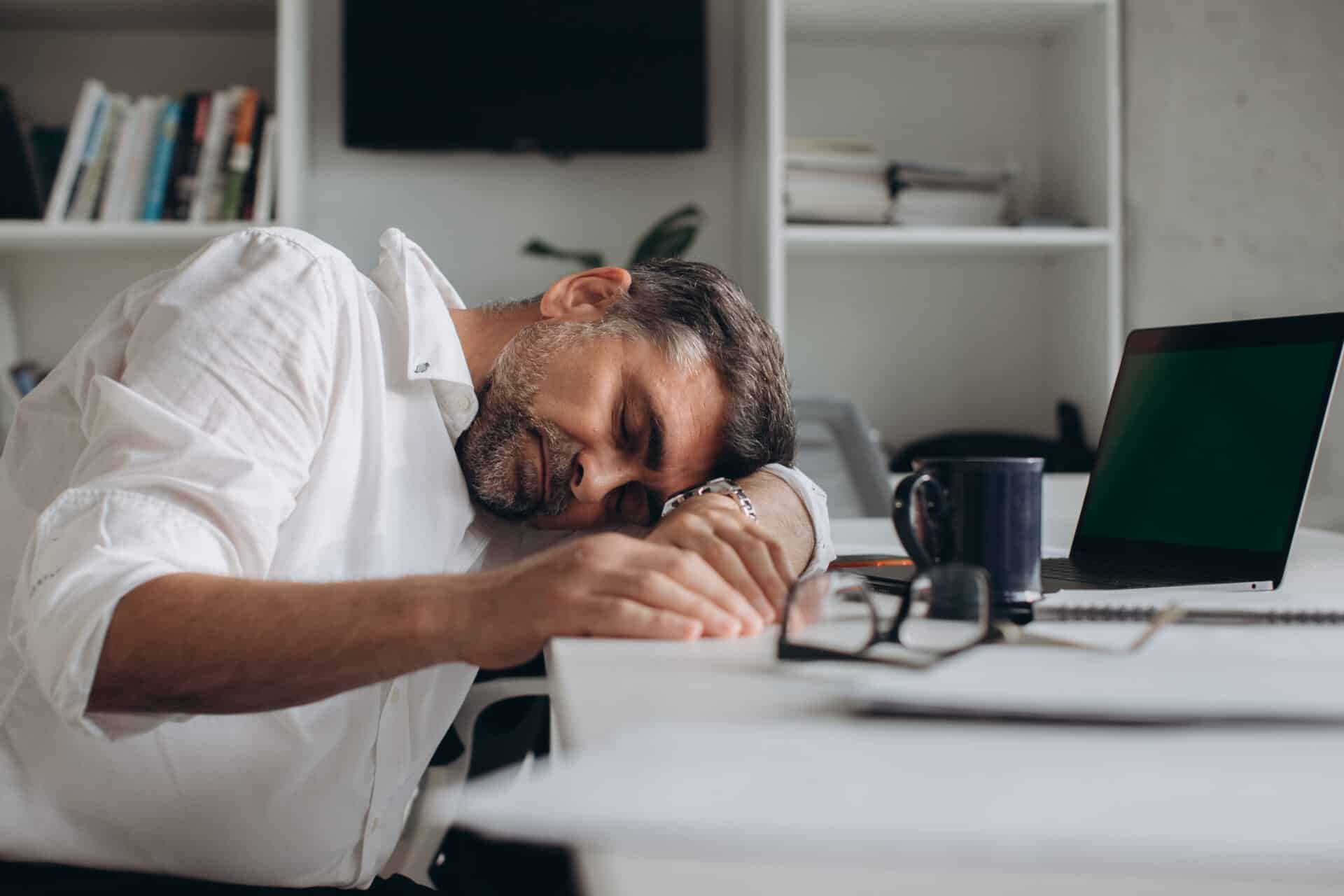Take Control of Your Sleep Cycle.

Narcolepsy Treatment
Do you have trouble staying awake through the day? Do you have hallucinations as you’re falling asleep or frequent sleep paralysis? You may be suffering from narcolepsy.
Narcolepsy is one common form of hypersomnia or excessive sleepiness. About one in every 2,000 people is diagnosed with narcolepsy, but sleep scientists suspect that as many as half of all narcolepsy sufferers are undiagnosed. It’s estimated that almost 100,000 additional individuals in the US suffer from idiopathic hypersomnia, a similar condition.
Our team has the tools needed to diagnose your excessive sleepiness and provide you with narcolepsy treatment options to help you enjoy more of everyday life.
Narcolepsy Treatment Options From Sleep Practitioners
There is currently no cure for narcolepsy. However, Sleep Practitioners has a number of narcolepsy treatment options that may help sufferers enjoy a more natural sleep-wake cycle with fewer symptoms.
Medications
Several different medications may be therapeutic for narcolepsy patients:
- Modafinil is a stimulant that’s commonly used as the first treatment for an individual’s narcolepsy. It has a lower risk of addiction and fewer side effects than most other stimulants.
- Amphetamine-like stimulants like methylphenidate may be used to stimulate wakefulness in the daytime if modafinil proves to be ineffective.
- Antidepressants, specifically tricyclics and SSRIs, may be used to help treat cataplexy in patients with Type I narcolepsy.
- Sodium oxybate, also known as GHB, may also help reduce daytime sleepiness in narcolepsy patients but is tightly restricted and will usually be one of the last treatments tried.
- A recently approved drug named Pitolisant increases histamine levels in the brain and has been effective in providing a non-addictive, safer narcolepsy treatment in certain patients.
Lifestyle Changes
Medical narcolepsy treatment may also be paired with several suggested lifestyle changes:
- Taking regular short naps
- Maintaining a consistent sleep schedule
- Avoiding caffeine, nicotine, and alcohol
- Daily exercise, taken at least four hours before bedtime
- Avoiding nighttime meals
- Relaxing before bed
With Proper Treatment, Your Narcolepsy Symptoms Can Be Managed.
Contact your primary care physician for a referral, or contact us for more information.
What Is Narcolepsy?
Narcolepsy is a neurologic disorder that results in an inability to control the body’s sleep-wake cycle. As a result, narcolepsy sufferers tend to feel extremely tired, even if they’ve had adequate sleep. Fragmented nighttime sleep punctuated by periods of wakefulness may also occur.
In some cases, narcolepsy sufferers may fall asleep in the middle of everyday activities. This symptom is bad enough when the patient is having a conversation or working at a desk, but it can be fatally dangerous if the patient falls asleep driving or operating machinery.
Common Symptoms of Narcolepsy
Hypnogogic Hallucinations
Also known as “waking dreams,” hypnogogic hallucinations occur as a person drifts off to sleep. While they can take any form—sights, sounds, odors, or tactile sensations—most are visual. During a hypnogogic hallucination, the individual perceives something that isn’t actually there.
Sleep Paralysis
During the phase of sleep when most dreams occur – REM sleep – the body’s muscles relax and lose tone, a phenomenon known as “REM atonia.” If you experience REM atonia while you’re drifting off to sleep or waking up from sleep, you will experience sleep paralysis: you will be awake and conscious but unable to move or speak.
Cataplexy
Sudden weakness and a loss of voluntary muscle control while awake are the common symptoms of cataplexy. Defined as the “sudden loss of muscle tone,” cataplexy may or may not be present in patients with narcolepsy and is the determining factor of which type of narcolepsy (Type I or Type II) a patient has.
Two Types of Narcolepsy
- Type I narcolepsy is also known as narcolepsy with cataplexy. Patients suffering from Type I narcolepsy will occasionally experience periods of muscle weakness and/or loss of muscle control during their waking hours.
- Type II narcolepsy is also known as narcolepsy without cataplexy. Type II narcolepsy patients will tend to have many of the symptoms of Type I narcolepsy but do not experience cataplexy.
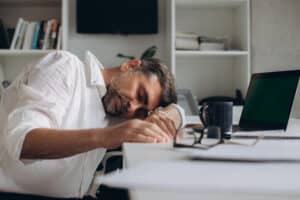
Idiopathic Hypersomnia
Some individuals with excessive daytime sleepiness are not suffering from narcolepsy but from a similar condition called idiopathic hypersomnia (IH). Patients with IH may experience the main narcolepsy symptom of being extremely sleepy throughout the day but are less likely to experience other symptoms, like cataplexy or sleep paralysis. Another difference between narcolepsy and IH is that daytime naps tend to be refreshing for those with narcolepsy, while naps provide no real rest benefit for IH patients.
Many of the treatments for narcolepsy are also used to treat IH.
What Causes Narcolepsy?
At the moment, the exact causes of narcolepsy are not fully understood. Most sufferers have low levels of a naturally occurring chemical known as hypocretin. Hypocretin helps the body regulate the sleep-wake cycle.
Current research into narcolepsy indicates that there could be a number of reasons for someone to experience low hypocretin levels:
- Autoimmune disorders: In most cases of Type I narcolepsy, brain cells that produce hypocretin are lost, and that loss may be attributable to an immune abnormality. In these patients, some problem with the immune system causes it to attack and destroy hypocretin-creating brain cells.
- Family history: While most cases of narcolepsy are isolated, about 10% of cases seem to emerge from families with a history of the disorder.
- Brain injuries: Both traumatic head injuries and tumors or other diseases can damage the brain’s ability to create hypocretin.
Let Sleep Practitioners Help You Get Better, Restful Sleep.
Contact your primary care physician for a referral, or contact us for more information.




